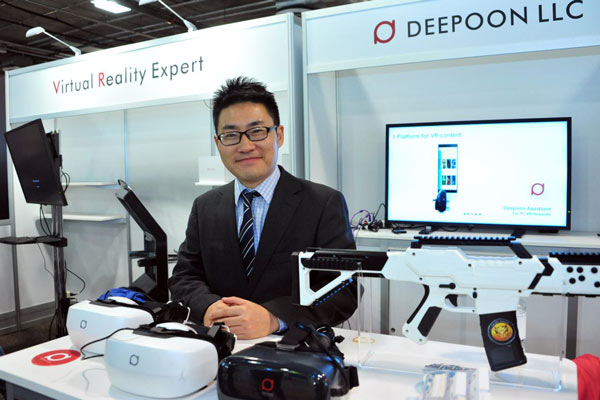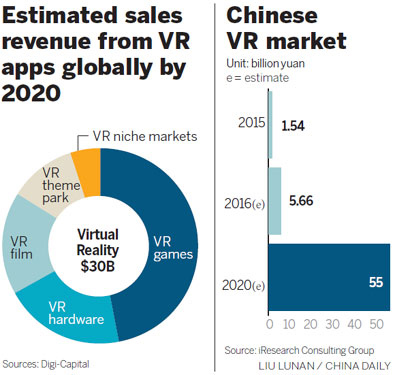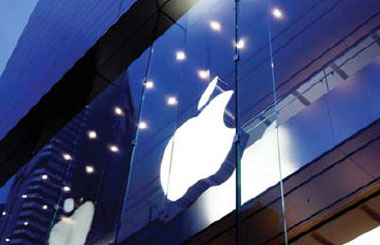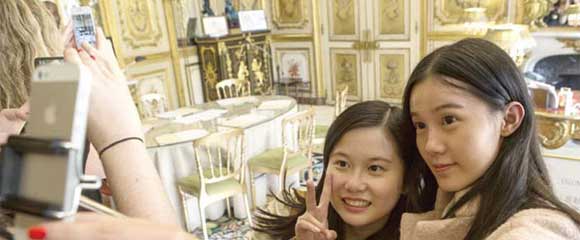DeePoon all-in-one VR headset debuts at 2016 International CES
Updated: 2016-01-09 17:06
By Liu Zheng(chinadaily.com.cn)
|
|||||||||||
 |
|
Alex Xu, sales director of Le Xiang Technology Ltd, poses for a picture with the company's virtual reality headset DeePoon VR M2 on December 7, 2015 at the International consumer electronics show (CES) held in Las Vegas. [Photo/Provided to chinadaily.com.cn] |
As top companies in the virtual reality headset industry, such as Oculus, HTC, and Sony showcase their virtual reality eyewear at the International consumer electronics show (CES) held in Las Vegas, Chinese companies also made their presence felt.
DeePoon VR , a domestic consumer-targeted VR manufacturer owned by Shanghai-based Le Xiang Technology Ltd, announced an all-in-one VR headset at the CES held through Wednesday to Saturday.

Compared with the inexpensive VR goggles that link up with smartphones to provide an immersive experience while you watch videos or play games, the all-in-one VR headset, shipped with built-in motherboard and chip to work with computers or operate independently, is currently the high-end industry standard for VR enthusiasts.
Named DeePoon VR M2, the new device is equipped with a Samsung 2K resolution OLED display and is powered by the Android system.
"The product launch ceremony will be held in March in Beijing," said Chen Chaoyang, the CEO of Le Xiang Technology Ltd. According to Chen, M2 will be a VR device that focus on video games.
According to the company, the performance of the device may rival Samsung's Gear VR.
In December, Le Xiang received $30 million B-roll investments from Xiaomi-backed Chinese video streaming site Xunlei and Shanghai-based Internet company kingnet.com.
According to Lv, the chief technology officer of Le Xiang, the company has signed global strategic cooperation agreements with microprocessor supplier ARM. The latter firm will provide front buffer and context priority support to DeePoon VR.
Lv graduated from Princeton University and used to be one of the heads of Intel's core algorithm team.
"Currently, the domestic market share of DeePoon VR has surpassed 63 percent," said Le Xiang.
In July 2015, Le Xiang unveiled its DeePoon head mounted display, an online crowdfunding goggle that works with smartphones to provide an Oculus-like VR experience.
During this year's CES, there are more than 40 exhibitors displaying the next wave of immersive multimedia for virtual reality systems and environments, gaming hardware, software and accessories designed for mobile, PCs and consoles.
"The VR industry will generate $30 billion in revenue by 2020, with VR games accounting for nearly half of it. Hardware, films and theme parks rooted in VR will generate the other half," said China Daily, citing the estimate report from research consulting firm Digi-Capital.
According to research firm Tractica LLC, worldwide (excluding China) VR revenue this year will likely be close to $500 million, mainly driven by demand for VR headsets, content, and content creation tools such as cameras from the United States, West Europe and Asia.
In China, the VR market is on track to generate 5.7 billion yuan ($880 million) in revenue, a nearly threefold year-on-year increase, according to iResearch Consulting Group, a Beijing-based research company.
It further estimated revenue is set to exceed 55 billion yuan by 2020 because of a foreseeable demand surge. By then, the sector's size will likely be comparable to the early days of the smartphone market.
Related Stories
As phone sales cool, HTC bets on VR devices 2016-01-05 07:28
LeTV gears up for the boom of China's VR market 2015-12-24 16:57
Huawei presents VR prototype 'MirrorSys' at CeBIT 2015-03-18 14:39
Today's Top News
Going mobile
Wealth of options for China's super-rich
Man with knife shot dead outside Paris police station
Trading halted after shares fall 7% in opening minutes
China voices its 'resolute opposition' to DPRK test
Design exhibition to attract Chinese art works
Germans shaken by mass attacks on women
Concerns grow over Saudi-Iranian rising tensions
Hot Topics
Lunar probe , China growth forecasts, Emission rules get tougher, China seen through 'colored lens', International board,
Editor's Picks

|

|

|

|

|

|






